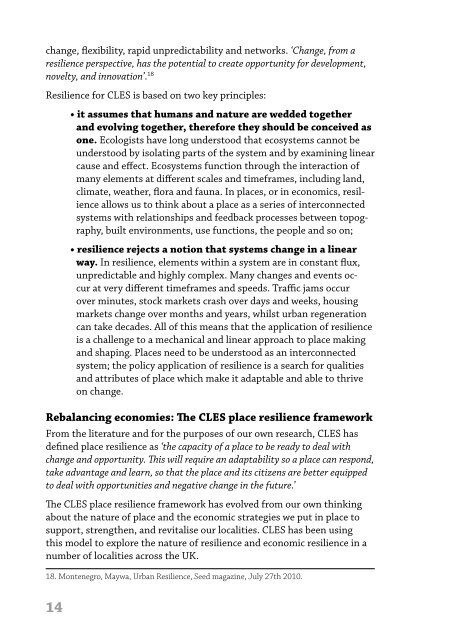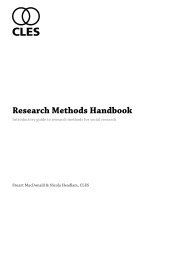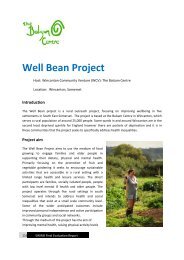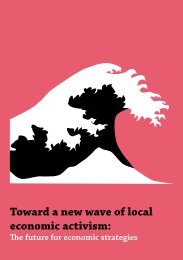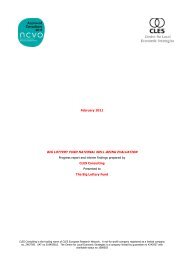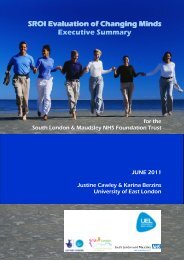Productive local economies: creating resilient places CLES
Productive local economies: creating resilient places CLES
Productive local economies: creating resilient places CLES
Create successful ePaper yourself
Turn your PDF publications into a flip-book with our unique Google optimized e-Paper software.
change, flexibility, rapid unpredictability and networks. ‘Change, from a<br />
resilience perspective, has the potential to create opportunity for development,<br />
novelty, and innovation’. 18<br />
Resilience for <strong>CLES</strong> is based on two key principles:<br />
14<br />
• it assumes that humans and nature are wedded together<br />
and evolving together, therefore they should be conceived as<br />
one. Ecologists have long understood that ecosystems cannot be<br />
understood by isolating parts of the system and by examining linear<br />
cause and effect. Ecosystems function through the interaction of<br />
many elements at different scales and timeframes, including land,<br />
climate, weather, flora and fauna. In <strong>places</strong>, or in economics, resilience<br />
allows us to think about a place as a series of interconnected<br />
systems with relationships and feedback processes between topography,<br />
built environments, use functions, the people and so on;<br />
• resilience rejects a notion that systems change in a linear<br />
way. In resilience, elements within a system are in constant flux,<br />
unpredictable and highly complex. Many changes and events occur<br />
at very different timeframes and speeds. Traffic jams occur<br />
over minutes, stock markets crash over days and weeks, housing<br />
markets change over months and years, whilst urban regeneration<br />
can take decades. All of this means that the application of resilience<br />
is a challenge to a mechanical and linear approach to place making<br />
and shaping. Places need to be understood as an interconnected<br />
system; the policy application of resilience is a search for qualities<br />
and attributes of place which make it adaptable and able to thrive<br />
on change.<br />
Rebalancing <strong>economies</strong>: The <strong>CLES</strong> place resilience framework<br />
From the literature and for the purposes of our own research, <strong>CLES</strong> has<br />
defined place resilience as ‘the capacity of a place to be ready to deal with<br />
change and opportunity. This will require an adaptability so a place can respond,<br />
take advantage and learn, so that the place and its citizens are better equipped<br />
to deal with opportunities and negative change in the future.’<br />
The <strong>CLES</strong> place resilience framework has evolved from our own thinking<br />
about the nature of place and the economic strategies we put in place to<br />
support, strengthen, and revitalise our <strong>local</strong>ities. <strong>CLES</strong> has been using<br />
this model to explore the nature of resilience and economic resilience in a<br />
number of <strong>local</strong>ities across the UK.<br />
18. Montenegro, Maywa, Urban Resilience, Seed magazine, July 27th 2010.


